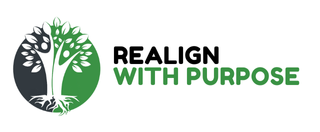Ever paused to consider if you’re in the right “tribe” at work? This exploration could transform your career path and team dynamics. Let me show you why.
LinkedIn connections. Communities. Teams. Partners. Companies.
As humans, we’re hardwired for connection. We form couples, join groups, build communities, and become part of organizations. Why? Because historically, tribes meant survival. Standing back-to-back, protecting each other from threats, united by common purpose.
What Makes a True Tribe?
But what transforms a random collection of colleagues into a genuine tribe?
It’s more than just proximity or job titles. True tribes form around shared interests, aligned values, common goals, and — crucially — trust. Without trust, you don’t have a tribe; you have just a bunch of people occupying the same space.
This raises an important question: Is your current work environment actually your tribe? What tells you that you belong there?
The Core Values Compass
I used to dismiss company core values as corporate propaganda. The abstract words in fancy frames hanging on office walls looked dead. But I’ve come to see them differently.
A company’s mission, vision, and core values form its philosophical foundation. They’re not just decorative phrases but navigational tools directing people toward common objectives while filtering out incompatibilities. Companies function like mini-states with their own belief systems, rules, and boundaries to maintain order and sustainability.
When your personal values clash with company values, the disconnect eventually surfaces as misunderstandings, conflicts, burnout, or a palpable desire to escape. That’s why knowing your own core values is crucial. They serve as filters for choosing which tribes to join and which to avoid.
Discovering Your Core Values: A Quick Exercise
Not sure what your core values are? Try this 5-minute exercise:
- Review this list of potential values: Acceptance, Adventure, Balance, Communication, Compassion, Creativity, Freedom, Growth, Honesty, Innovation, Integrity, Justice, Knowledge, Leadership, Learning, Openness, Quality, Respect, Teamwork, Trust
- Prioritize them:
- Order by importance
- Select top 10
- Reorder
- Narrow to top 5
- Final reorder
- Choose your top 3
These three are your core values — your personal compass.
Now compare your list with your company’s values. How aligned are they? The degree of overlap might reveal why you feel energized or drained in your current role.
Tribal Alignment in a Complex World
I’m not suggesting you should abandon ship if there’s a values mismatch. But clarity helps you navigate potential friction points and make informed decisions about your future.
Most people never consciously examine which flags they stand under or which principles they’re implicitly supporting—whether in their country, company, community, or relationships. This lack of awareness can lead to painful awakenings when conflicts arise.
Life is multidimensional, especially when work and personal boundaries blur. You can simplify by distinguishing when and under what conditions you align with different tribes. Following your principles and establishing healthy boundaries enables sustainable relationships in all areas of life.
“A team is not a group of people who work together. A team is a group of people who trust each other.” – Simon Sinek.
Do you and your colleagues truly trust each other? If not, perhaps you haven’t found your tribe yet.
If you could add one core value to your current organization, what would it be and why?

